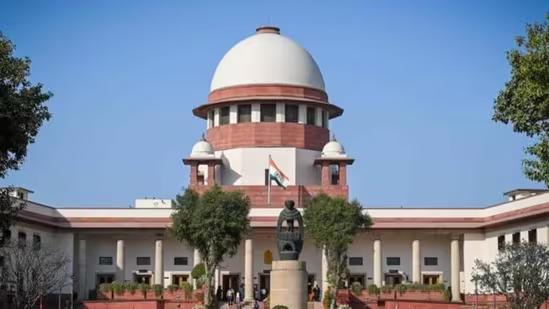
Court Can’t Grant Assent to Bills, Only Guv & Prez Can: Maha to SC
In a significant development, the Maharashtra government has argued in the Supreme Court that courts cannot accord assent to bills and only the Governor and President have the constitutional power to do so. Senior advocate Harish Salve, representing Maharashtra, made these comments during a hearing on the presidential reference, which deals with whether the court could impose timelines for the Governor and President to deal with bills passed by state Assemblies.
The presidential reference was filed by the Centre in 2018, seeking guidance on whether the court could fix a timeline for the Governor to act on bills passed by the state Assembly. The Centre had argued that the Governor’s role in the legislative process was ceremonial, and if he did not act on a bill within a certain timeframe, the court could step in to ensure the smooth functioning of the government.
However, the Maharashtra government, represented by Harish Salve, has taken a different stance. Salve argued that the court’s role is limited to interpreting the Constitution and laws, and it cannot assume the powers of the Governor or President. He contended that the Governor has the power to assent to bills, and if he does not do so, the bill lapses.
“The court cannot grant assent to a bill. The Governor or the President can do so, and no one else,” Salve said during the hearing. He added that the court’s role is limited to ensuring that the legislative process is followed correctly, but it cannot substitute its own judgment for that of the Governor or President.
The Maharashtra government’s argument is based on the constitutional framework, which clearly outlines the roles of the Governor and President in the legislative process. Article 111 of the Constitution states that the President shall assent to a bill passed by both Houses of Parliament, and if he does not do so, he can reserve the bill for consideration by the President. Similarly, Article 200 of the Constitution says that the Governor shall assent to a bill passed by the state Assembly, and if he does not do so, he can reserve the bill for consideration by the Governor.
The Centre’s argument, on the other hand, is based on the idea that the Governor’s role in the legislative process is ceremonial, and if he does not act on a bill within a certain timeframe, the court can step in to ensure the smooth functioning of the government. However, this argument has been criticized by many constitutional experts, who say that the Governor’s role is not merely ceremonial, but rather a vital part of the legislative process.
The hearing on the presidential reference is ongoing, and the Supreme Court is expected to deliver its verdict soon. However, the arguments made by the Maharashtra government highlight the importance of respecting the constitutional framework and the roles of the Governor and President in the legislative process.
In conclusion, the Maharashtra government’s argument that courts cannot grant assent to bills and only the Governor and President have the constitutional power to do so, underscores the need for a nuanced understanding of the constitutional framework and the roles of the Governor and President in the legislative process. As the Supreme Court deliberates on the presidential reference, it is essential to ensure that the court’s decision respects the constitutional framework and the principles of separation of powers.
Source:






